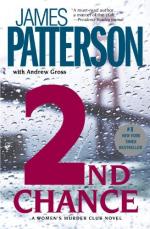|
This section contains 407 words (approx. 2 pages at 300 words per page) |

|
The Philip Marlowe novels of Raymond Chandler are Parker's most significant influence, one acknowledged in Parker's completion of Chandler's Poodle Springs (1989), and in his sequel to The Big Sleep (1939; see separate entry),Perchance to Dream (1991). Spenser gets his name, of course, from the Elizabethan poet, Edmund Spenser, whose epic The Faerie Queene (1590-1596) describes various knight errants of Queen Gloriana in allegorical quests and combats. In keeping with the romanticism of the Elizabethan visionary poet, Parker often uses epigraphs and allusive titles from English and American Romantic poets (Coleridge, Keats, Blake, Browning, Melville, and Yeats for instance, although recent titles have tended to draw on allusions to Elizabethan verse). There is no such epigraph to Chance, but the title may be an oblique homage to that disenchanted romantic, Joseph Conrad—who once published a novel called Chance about a woman's struggles to find freedom and...
|
This section contains 407 words (approx. 2 pages at 300 words per page) |

|




